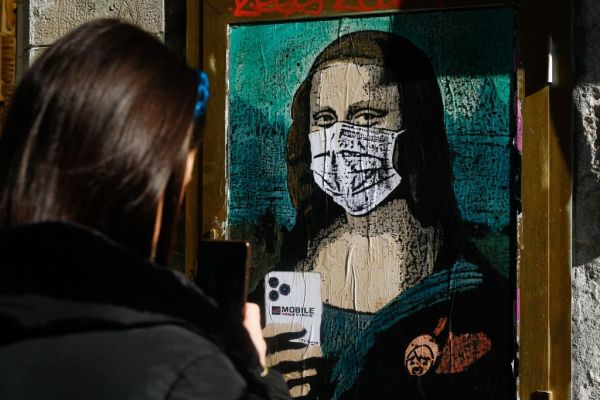The death of Mobile World Congress 2020 started as a trickle.
First, it was an understandably nervous ZTE. As a Chinese company, it was undoubtedly going to receive extra scrutiny — never mind that ZTE’s Shenzhen headquarters are a two-hour flight from Wuhan. Soon enough, South Korea’s LG backed out, followed by Nvidia and Ericsson.
By the weekend, as deaths from the coronavirus rose to more than 800 (surpassing SARS in the process), event organizers GSMA put strict guidelines in place for approximately 100,000 expected attendees:
- No travelers from the Hubei province would be permitted access.
- Attendees were required to prove that they were outside China for 14 days prior to the event (passport stamp, health certificate).
- Temperature screening was to be implemented.
- Attendees needed to self-certify they had not been in contact with anyone infected.
Ultimately, it was too late. Soon enough, Amazon was out and the list ballooned to dozens of companies, including AT&T, Intel, Nokia, Sony and Vodafone. Each offered a similar boilerplate response, noting the cost-benefit analysis for sending staff to a large international show amid concerns of a global epidemic.
PCMag’s Sascha Segan wrote a piece worth reading on “snowballing hysteria” around a trade show killed in a country that only had two reported cases at the time of cancellation. It’s a valid point, though speaking purely pragmatically, I can understand why companies felt obligated to back out.
If you want to give them the benefit of the doubt, there are some valid concerns about sending employees into the petri dish of colds and flus that is basically every trade show, coupled with the novelty of a new and still not completely understood virus. It can be difficult to balance concerns for employee safety with the need to resist panicking over media reports that tend to overemphasize threats.
It’s also important not to lose sight of the fact that the virus is very real and people have lost their lives. Much of Asia — and the world at large — is on edge over the threat. As such, it feels downright trivial to discuss the outbreak’s impact on a mobile phone conference. Companies have an obligation to keep employees safe above all — or to be more crass, having an employee contract the coronavirus during a trade show would be a PR nightmare.
Ultimately, one of countless unintended consequences of this will be a referendum on trade shows in general. In many ways, it’s an extension of conversations many of us have been having for years. Are trade shows worth it? In an age when the vast majority of business is done online, how important is it that we all gather in a giant room a couple of times each year to glad-hand business partners and make behind-the-scenes deals in hotel suites?
It’s a subject I’ve discussed numerous times at various publications where I’ve worked over the years. And while the term “webinar” still makes my skin crawl, it’s a perfectly valid conversation. We’ve already seen a handful of companies move toward online press conferences — particularly those located in places like China that may have limited access to Western press.
Those are still the relative minority, however. Larger companies still have standalone in-person events — often in places like New York, San Francisco and London. For smaller companies, conferences are extremely important. They’re an opportunity to grab the attention of the tech press, partners and other industry types. From my own experience, the real gems of the show are the ones you discover while walking the floor or chatting up analysts and VCs. Oftentimes, it’s companies you had little to no familiarity with until the week of the event. As someone who almost exclusively covers hardware, there’s an undeniable value in being there in person, as well.
Given that MWC was canceled less than two weeks before it was scheduled to begin, many companies have been left reeling (as is, no doubt, the GSMA). Speaking with a number of companies, it’s clear that they’re still grappling with how and when to make announcements. Again, these are relatively insignificant issues in the context of broader public safety, but even with concern over the virus dating back to January, it’s clear that a number of companies didn’t have a plan B.
The events of the last few weeks will likely cause some companies to reevaluate how they approach conferences moving forward, perhaps a conversation they have every year when it’s time to put together their annual budgets. Certainly, attendance of shows tends to ebb and flow.
In my own professional experience, E3 is probably the best example. A little over a decade ago, the show appeared to be dead or dying, as its large presence had essentially been downsized from a conference center to hotel meeting rooms. The show’s absence was felt in the industry, helping PAX grow by leaps and bounds in the process.
If anything, I anticipate that having the rug pulled out from under them in the lead up to MWC will only reinforce the importance of these sorts of shows for many companies going forward.

